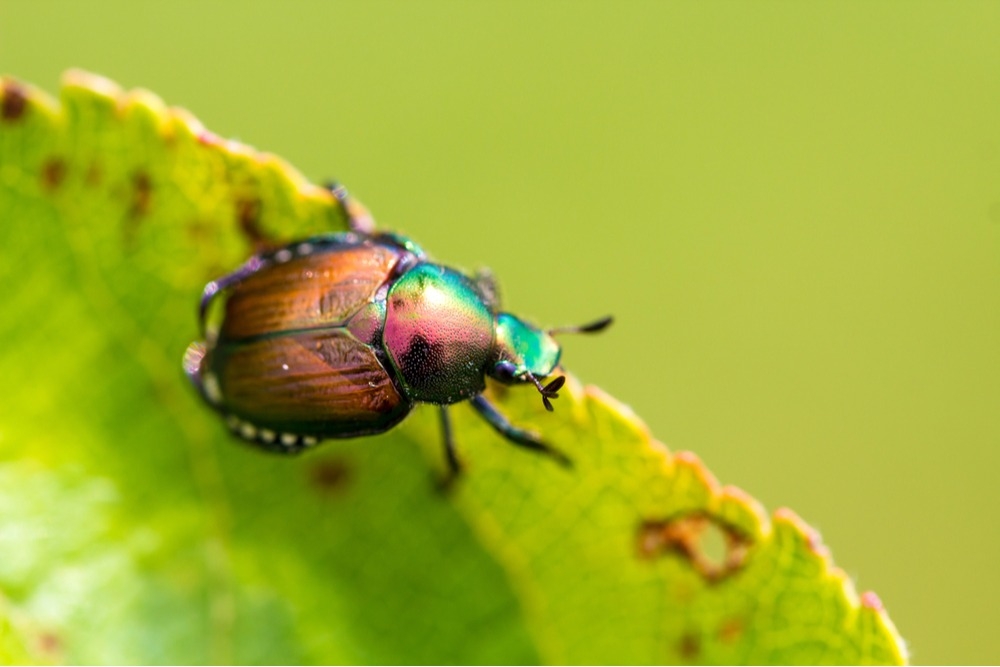The Battle Against Japanese Beetles in Colorado: Protecting Your Plants and Gardens
Denver, Colorado is known for its stunning landscapes, beautiful gardens, and flourishing vegetation. However, there is one pest that threatens to disrupt the harmony of these green spaces – the Japanese beetle. Originally from Japan, these invasive insects have made their way to Colorado and are wreaking havoc on plants and gardens across the state.
Understanding Japanese Beetles
Japanese beetles are small, metallic-green beetles that are about half an inch long. They have distinctive copper-colored wing covers and small tufts of white hair along their abdomens. While the adult beetles are the most destructive stage, their larval form, known as grubs, can also cause significant damage to plant roots.
Damages Caused by Japanese Beetles
Japanese beetles feed on the foliage and flowers of a wide variety of plants, making them a significant threat to gardeners and landscapers in Colorado. They particularly favor roses, fruits, vegetables, and ornamental trees. Their voracious appetite can quickly strip plants of their leaves and flowers, leaving behind a barren and unsightly landscape.
Controlling and Managing Japanese Beetles
Effective control and management of Japanese beetles are essential to preserve the beauty of Colorado's gardens and landscapes. Here are a few strategies to combat these invasive pests:
Conclusion
Japanese beetles may pose a significant threat to Colorado's plants and gardens, but with proper strategies and awareness, it is possible to minimize their impact. By implementing a combination of control methods and maintaining healthy plant environments, gardeners and landscapers can protect their cherished green spaces from these invasive pests. Stay vigilant, take action, and preserve the natural beauty of our beloved Colorado landscapes.
Go Back Understanding Japanese Beetles
Japanese beetles are small, metallic-green beetles that are about half an inch long. They have distinctive copper-colored wing covers and small tufts of white hair along their abdomens. While the adult beetles are the most destructive stage, their larval form, known as grubs, can also cause significant damage to plant roots.
Damages Caused by Japanese Beetles
Japanese beetles feed on the foliage and flowers of a wide variety of plants, making them a significant threat to gardeners and landscapers in Colorado. They particularly favor roses, fruits, vegetables, and ornamental trees. Their voracious appetite can quickly strip plants of their leaves and flowers, leaving behind a barren and unsightly landscape.
Controlling and Managing Japanese Beetles
Effective control and management of Japanese beetles are essential to preserve the beauty of Colorado's gardens and landscapes. Here are a few strategies to combat these invasive pests:
- Handpicking: If you spot Japanese beetles on your plants, quickly remove them by hand and drop them into a container of soapy water.
- Traps: Japanese beetle traps can be effective in reducing their population when used strategically. Place the traps away from the plants you want to protect to lure the beetles away.
- Natural Predators: Encourage natural predators like birds, wasps, and certain beetles that feed on Japanese beetles. These predators can help keep their population in check.
- Neem Oil: Neem oil is an organic insecticide that can be sprayed on plants affected by Japanese beetles. It acts as a repellent and disrupts their feeding behavior.
- Healthy Soil: Maintain healthy soil by regularly aerating and fertilizing. Healthy plants are less susceptible to Japanese beetle damage.
- Contact your local Denver experts at Root Tree Service to help you combat the issue
Conclusion
Japanese beetles may pose a significant threat to Colorado's plants and gardens, but with proper strategies and awareness, it is possible to minimize their impact. By implementing a combination of control methods and maintaining healthy plant environments, gardeners and landscapers can protect their cherished green spaces from these invasive pests. Stay vigilant, take action, and preserve the natural beauty of our beloved Colorado landscapes.
